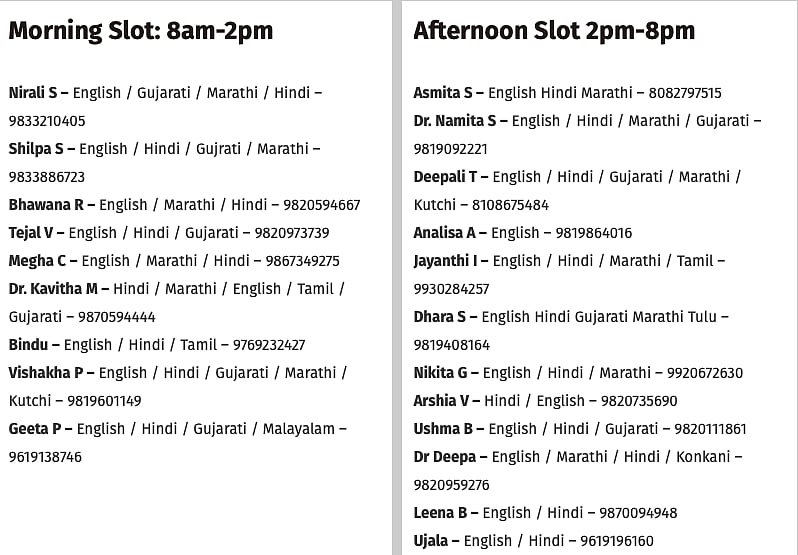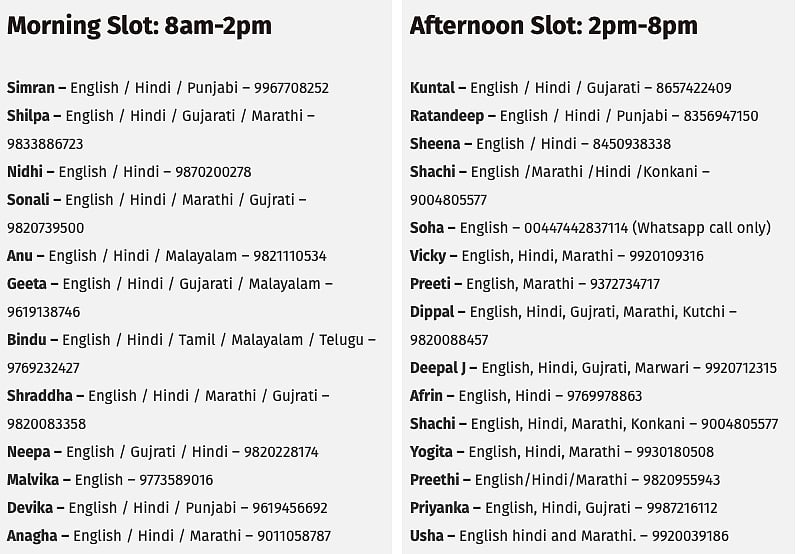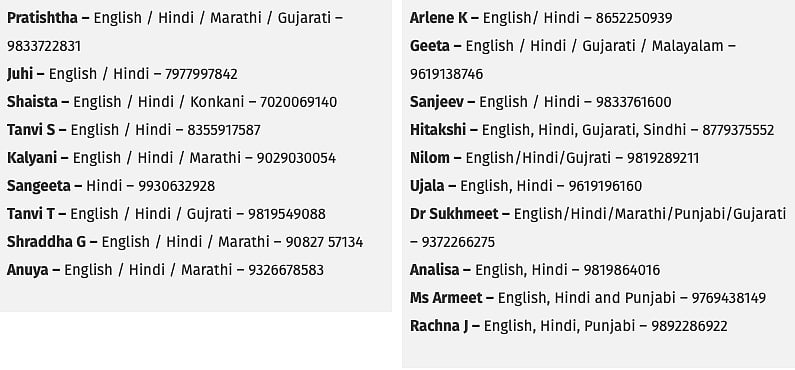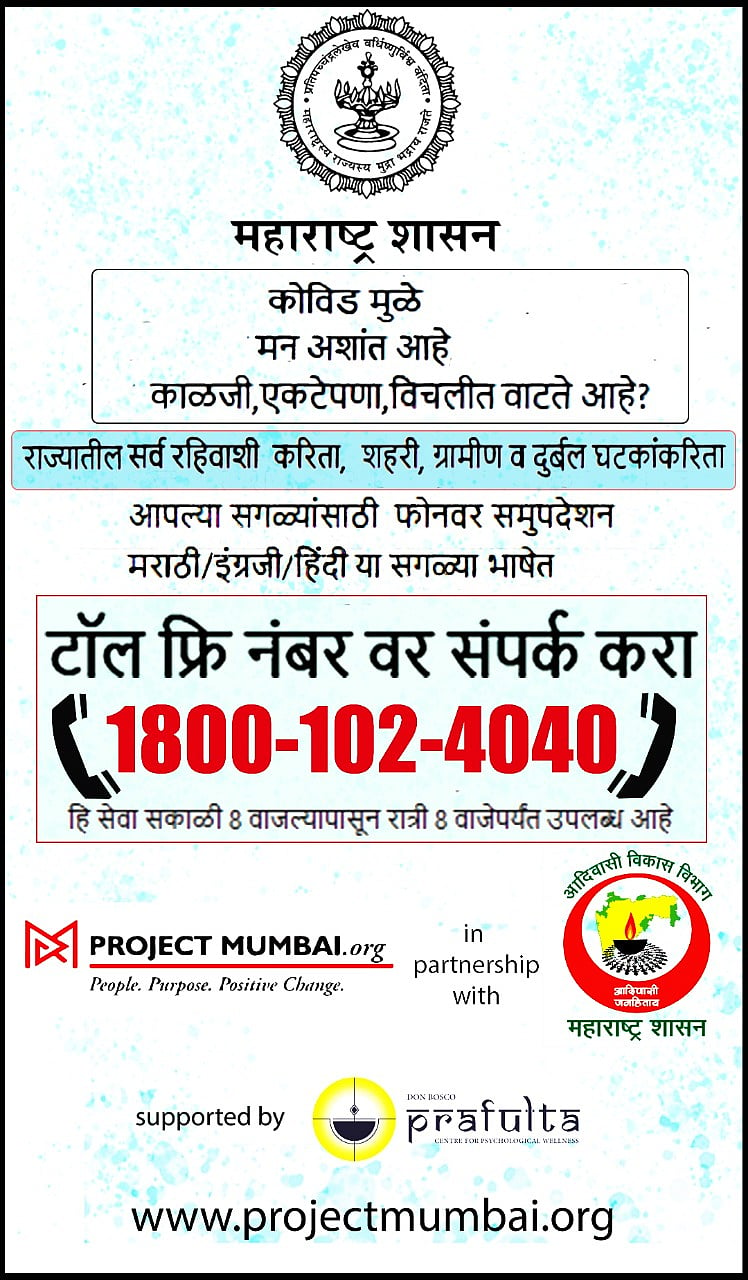One of the biggest challenges that people have faced during the lockdown that was imposed by the Centre, thanks to the novel coronavirus, COVID-19, has been battling mental health issues.
With the job market getting volatile and several people across various sectors, including the media, have lost their jobs. With the market not looking to recover any time soon, it’s highly unlikely that these individuals will end up getting jobs any time soon, which will only add to their mental health woes.
Writer Shayonee Dasgupta tells Free Press Journal about her woes. “What makes me most anxious is uncertainty. As someone with a mental health condition, my anxiety tends to flare up when there is uncertainty about the smallest things in my life. And in this case, given the magnitude, the anxiety is through the roof,” she says.
Although she is aware of helplines that address mental health in the city, Dasgupta says that she prefers a face-to-face interaction. “During this time, I speak to my sister or cook and bake as a coping mechanism. I also write down my issues in a journal,” she adds.
While Dasgupta admits that she is more privileged than others with mental health conditions who do wish to talk, but don’t have the facilities, now have access to a series counsellors across the state, thanks to an initiative set up by Project Mumbai, a city-based NGO that has been working relentlessly with the BMC, doctors, patients, and thousands of others in the city to battle the novel coronavirus.

Helplines for special needs counsellors | Project Mumbai
Speaking to Free Press Journal, Shishir Joshi, the founder and CEO of Project Mumbai said that the idea to set up the counsellors to speak to the people of the city happened on March 15, a week before Prime Minister Narendra Modi announced the nationwide lockdown. “Our home page has the list of counsellors who are available in two shifts – 8 am to 2 pm and 2 pm to 8 pm – every day. These counsellors speak to the caller and note down their details such as their name/age/location/district and condition,” Joshi said.

The time slots for mental health patients and the counsellors available | Project Mumbai

One interesting insight Joshi got from the callers was that most of them would call to address issues such as their job security, salary-related factors and what they would do if they ended up jobless during this time.
Following the success of this project, Project Mumbai announced that they were going to start a helpline for people dealing with special need members in their family. “Nearly 30 special needs therapists joined us to speak to parents facing anxiety because their children had conditions such as autism. The experts then spoke to them on how to handle the situation indoors, as it became nearly impossible for anyone to go out during the lockdown.”
With the success of these two drives, Project Mumbai launched Samvaad, a toll-free helpline to address mental health issues across all the districts in Maharashtra. This was announced by Chief Minister Uddhav Thackeray during his speech regarding lockdown extension. The first day saw nearly 1,000 callers, but subsequently the callers reduced with the average turning out to be around 350 per day. “We started off with 30 counsellors, but over time we had to get counsellors from Mumbai, Pune and Aurangabad to meet the increasing demand of callers,” added Joshi.

However, Joshi says that there are challenges. The counsllors are told to take off their display pictures and any personal information from their profile. “There have been callers dialing one particular counsellor because of their gender. We realized that this would be problematic, and instructed the counsellors to hide any personal information. If the caller still persisted, then we, as an NGO would intervene,” said Joshi.
Joshi’s initiative have won him a lot of praise. One Dharamraj Solanki wrote a detailed post on his work, calling him one of the unsung Corona Heroes. Solanki may have a point: besides the mental health counselling, Joshi’s NGO also ensures doctors and medical health workers get free meals every day, since hospitals have stopped operating their canteens. He also is working with the BMC and the Mumbai police to ensure that they are well looked after.










